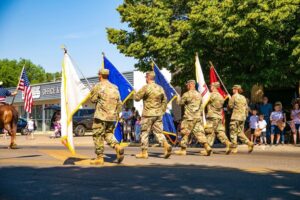
Joining the military is the ultimate sign of devotion you can show to your country. After all, you’re willing to put yourself on the line to safeguard the future of your nation and protect its way of life. You can continue to do that even after you’re no longer part of the military – by becoming a politician.
Veterans leaving the armed forces already have the qualities necessary to become great and influential policymakers – the willingness to put the needs of others before their own and a deep desire to serve the public. However, launching a political career straight out of the military is not an easy task. To help you make the change happen, here are some useful tips for veterans who want to start a career in politics.
Becoming a Member of Veteran Organizations
The first order of business for any person transitioning out of the armed forces should be to join a veteran organization. Living as an ordinary civilian is very different from serving in the military, and such institutions can help you adapt to these changes.
Most veteran organizations understand how much good the values and principles taught in the military can do in the world of politics. Many of them might actually be able to help you in starting your political career. For example, once you decide to run for an office of some kind, Vets 4 Vet Leadership can certify you as a candidate. This way, your constituents will know that they’re voting for a person of integrity and character.
Joining such organizations can also help you get in touch with other veterans. This gives you the chance to meet those who made the same career move years ago and ask them for advice.
Participating in a Training Program
As mentioned above, many of the qualities taught in the military are also required to become fine politicians. However, serving in the armed forces doesn’t prepare veterans for the more practical aspects of the job. Because of that, ex-military personnel should try to find training programs that would help them understand the realities of political careers.
A good example here would be the Veterans Program for Politics and Civic Engagement (VPPCE) offered by Syracuse University’s Institute for Veterans and Military Families. The course starts with the ideation that focuses on exploring the motivations of veteran candidates and finding offices that would best fit them.
As VPPCE progresses, instructors will cover a number of topics covering the ins and outs of being a politician. For example, participants can learn how campaign fundraising works, how to build successful campaign organizations, or master the art of public speaking. Ideally, participating veterans should have a functioning campaign plan by the end of the program.
For those veterans who are in the middle of an active campaign, there is a component that teaches them how to properly communicate with their voters and how to manage campaign committees.
Being Active Locally
Another approach to getting the experience necessary to launch a political career is by being involved in the local area.
Veterans who are aspiring to become politicians can contact local candidates and volunteer to help them organize their campaigns. This way, ex-military personnel can get an insight into how things are organized from the get-go. Helping at the local party headquarters is a great way to understand various political processes and prepare yourself for daily political hardships.
A good politician knows the needs and wants of their constituents. Veterans who plan to run for a public office should attend various political meetings to better understand the issues plaguing their communities. This should also help them learn the art of political negotiations.
Getting a University Degree
Although having an academic degree is not required to succeed in the world of politics, it is highly recommended. To illustrate the point, the last US President that didn’t have a college degree was Harry S. Truman, whose term ended almost 70 years ago.
Veterans who are planning to get into politics should focus on courses that might benefit their careers the most. Making reasonable policies is much easier when you have a law degree and a deep understanding of the legal system. On the other hand, studying international relations might prove useful for the veterans willing to become diplomats.
Conclusion
Transitioning from the military to the world of politics is certainly easier when veterans know what to do. A relevant degree helps ex-military politicians do their work better and looks good to constituents.
Being involved on a local level can help veterans get the necessary experience, understand the know-how of politics and learn the issues important to their future voters.
Veteran organizations can serve as a valuable source of advice for those willing to enter into politics. Furthermore, some organizations can even directly benefit veterans’ political careers by vouching for them. Finally, various training programs can help those leaving the military learn the ropes of being a politician.
Hopefully, now you have a much better understanding of how to launch your future political career and serve your country once again.






